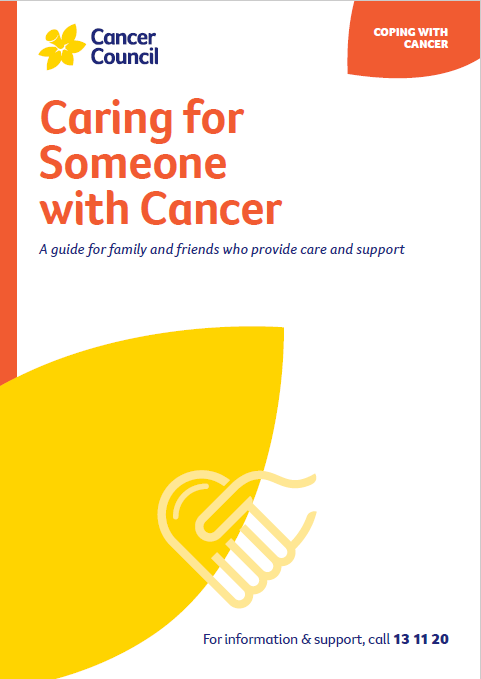- Home
- Cancer Information
- Advanced cancer
- Facing end of life
- Caring for someone who is dying
- Providing physical support
- Keeping a vigil
Keeping a vigil
For many people, being with the dying person is a way to show support and love. This is called keeping a vigil.
The person may be sedated or unconscious at this time. Your cultural or spiritual traditions may require someone to be present, and this may also be the time to perform any rituals.
Some people find keeping a vigil exhausting and draining, and it can be hard to estimate how long it will last. Taking breaks and sharing the time with others can help.
You may worry that leaving the room could mean missing the moment of death. If this happens, it may be reassuring to know that sometimes a person seems to wait to be alone before they die.
How to keep a bedside vigil
- You can simply sit with the person and perhaps hold their hand.
- Hearing is said to be the last sense to go, so you may want to talk to the person or even have a conversation among the people in the room so that the person knows they are not alone.
- You could read aloud, sing or hum or play some of their favourite music.
- Plan to take breaks or organise shifts with other family and friends.
- Decide who you think is appropriate to have in the room at this stage and let other visitors know if you want just close family.
- Have food and drinks on hand and some cushions and blankets if you are at a hospital or palliative care it where it may get cold.
→ READ MORE: Choosing the moment to die
Podcast: Caring for Someone in Their Last Months
Listen to more episodes of our podcast for people affected by advanced cancer
More resources
Prof Jane Phillips, Head, School of Nursing and Professor, Centre for Healthcare Transformation, Queensland University of Technology and Emerita Professor Palliative Nursing, University of Technology Sydney, NSW; Prof Meera Agar, Palliative Care Physician, Professor of Palliative Medicine, University of Technology Sydney, IMPACCT, Sydney, NSW; Sandra Anderson, Consumer; A/Prof Megan Best, The University of Notre Dame Australia and The University of Sydney, NSW; Prof Lauren Breen, Psychologist and Discipline Lead, Psychology, Curtin University, WA; David Dawes, Manager, Spiritual Care Department, Peter MacCallum Cancer Centre, VIC; Rob Ferguson, Consumer; Gabrielle Gawne-Kelnar, Counsellor, Psychotherapist and Social Worker, One Life Counselling & Psychotherapy, NSW; Justine Hatton, Senior Social Worker, Southern Adelaide Palliative Services, Flinders Medical Centre, SA; Caitlin MacDonagh, Clinical Nurse Consultant, Palliative Care, Royal North Shore Hospital, Northern Sydney Local Health District, NSW; McCabe Centre for Law and Cancer; Palliative Care Australia; Belinda Reinhold, Acting Lead Palliative Care, Cancer Council QLD; Xanthe Sansome, National Program Director, Advance Care Planning Australia; Kirsty Trebilcock, 13 11 20 Consultant, Cancer Council SA.
View the Cancer Council NSW editorial policy.
View all publications or call 13 11 20 for free printed copies.
Need to talk?
Support services
Support for carers
Speak to a health professional or to someone who has been there, or find a support group or forum
Cancer Council Online Community
A community forum – a safe place to share stories, get tips and connect with people who understand
Cancer information
Advanced cancer
Information for all stages of advanced cancer, from the initial diagnosis to palliative care and grief
Information for carers
Information for family and friends providing care to someone at any stage of cancer

